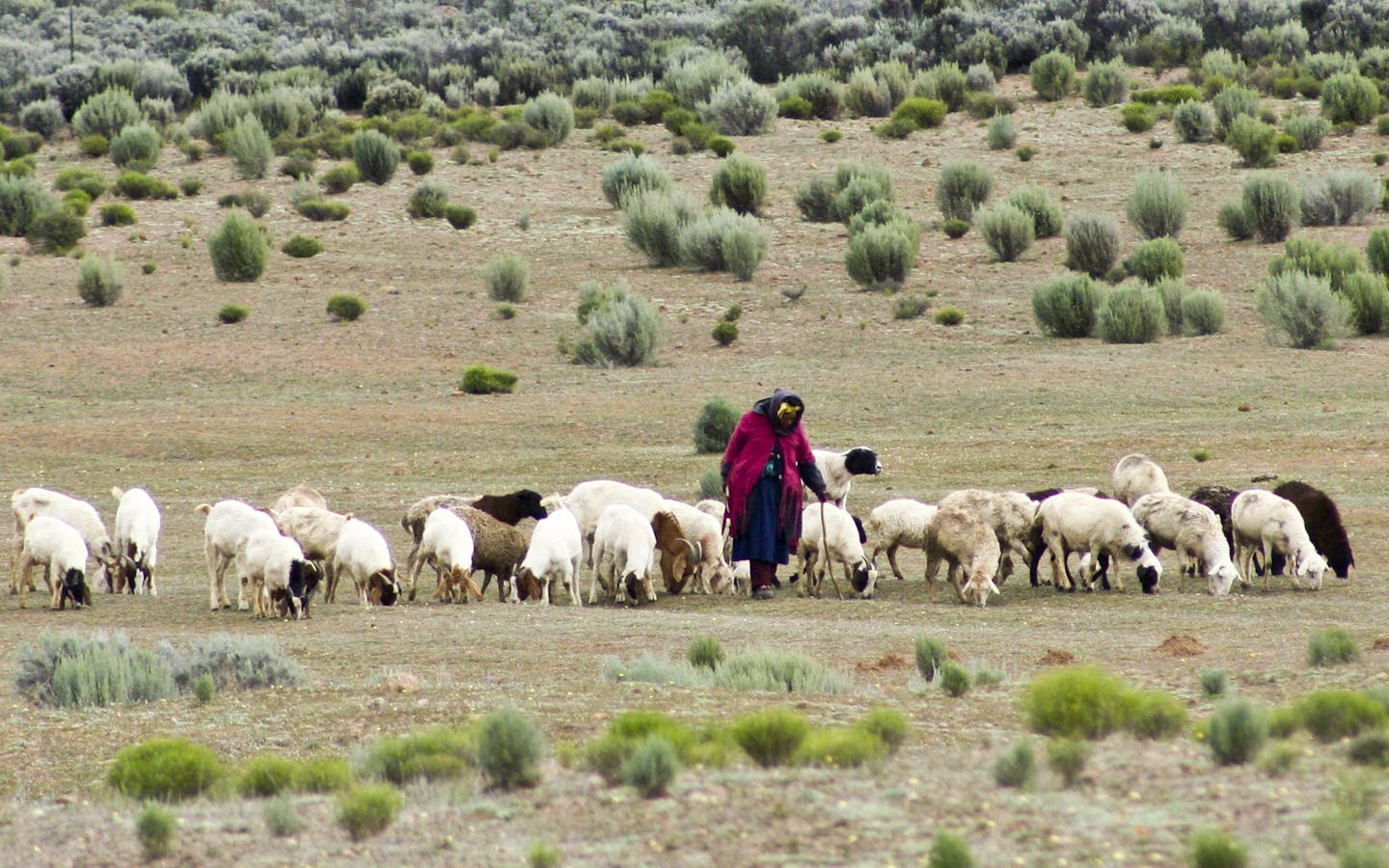Threatened by climate change
Farmers in the South African region of Namaqualand produce some of the finest quality lamb in the country, but they face water scarcity and land degradation that may be exacerbated by climate change.
Erosion, overgrazed land and plowed wetlands are common in this region, where sporadic rainfall and a semi-arid climate make existing wetlands vital to local people. Also relying on the wetlands are many plant species found nowhere else. Now, through conservation agreements — under which farmers agree to protect their natural resources and the services they provide in exchange for tangible benefits — South African livestock farmers are improving land management practices to help secure scarce water supplies, unique wildflower species and their own farming future.
Our role
In 2009, Conservation South Africa (CSA) and CI’s Conservation Stewards Program (CSP) initiated the Biodiversity and Red Meat Initiative (BRI), through which farmers commit to sustainable approaches to grazing, water management, stock numbers and predator control. In return, they get higher prices for their stock and other benefits.
Our plan
Through conservation agreements, farmers have improved their management of more than 12,000 hectares (more than 29,000 acres), enhancing the long-term outlook for their own operations and the overall health of the ecosystem. Meanwhile, Conservation South Africa facilitates the sale of stock at attractive prices, funds water pump maintenance and provides employment for local monitoring officials who assist farmers in implementing sustainable grazing and monitoring regimes. The farmers also receive training in fire, farm and wetland management as well as non-lethal predator control.
By the numbers
12,100 hectares protected
Through conservation agreements, farmers have protected or improved management of 12,100 hectares (29,899 acres), enhancing long-term outlook for their own operations and the health of the ecosystem.




